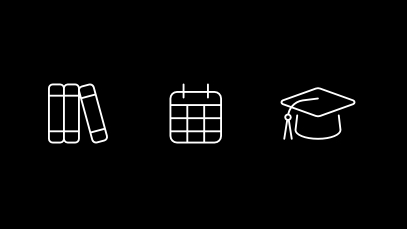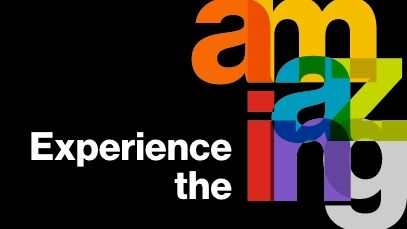Find Yourself to Find a Job
Find Yourself to Find a Job
Written by Emily Arnold
Now that your academic semester is finished many of you may be searching for co-op opportunities or looking for the ideal position to start your career. While some may know their ideal career path and have charted out an extensive 5-year plan in their head, I'm sure a majority are still trying to figure out which career option, out of the many available to RIT Croatia students, is right for them.
Although quarantine is soon coming to an end in Croatia, so have your studies for this academic year. Right now is the perfect time to do some self-exploration to figure out what direction in life you'd like to go and which will make you the most fulfilled. I'll be a helping guide you through in terms of potential career by offering a look into personal brands, how you can explore various career paths from your home, and the importance of online presence when searching for the job that's right for you.
Your personal brand
Your brand is your story. It tells people who you are, how you got where you are and where you want to go. It will help you differentiate yourself amongst your competition, by pinpointing your strengths and weaknesses, identifying the things you need to work on, as well as your passions and values. A personal brand should be consistent and unique to you. Employers want to know what to expect when they hire you and need you to follow through on the expectations you've given them. Your brand should be a genuine reflection of who you are because when someone is being themselves and knows themselves well, that's when their best work shines through.
Here are some steps to finding your personal brand and how to utilize it during your career!
- Identify the personal accomplishments and experiences that have brought you where you are today.
As I've said above, your brand is your story. Being aware of your own story will help you to understand your goals and values, and where they came from. It will also help you to communicate these to others, build self-awareness, and send a meaningful message to the people around you. Potential employers will not only want to make sure you're qualified for the job, but will want to make sure you're the right fit for the company. This will entail sharing your story with them. If you do it well, it will help you stand out from the other candidates and make the interview a more meaningful experience to you and the interviewer alike. In this TED talk from America Ferrera, she uses her story along with the following steps to find her personal brand and inspire others: America Ferrera: My Identity Is My Superpower -- Not An Obstacle.
- Recognize your core values and passions.
After writing down the important experiences in your life, it's time to discover how they've impacted you as an individual. Our values are built upon these instances. They are the characteristics we search for in friends, family and work and are prioritized above all else. If we look for a career that doesn't satisfy these, it will be harder to fully dedicate yourself to the work you do. Some examples of values could be honesty, creativity, commitment or even good humor. They're completely unique to the individual and can be anything you feel best reflects your personality the most.
If you're having a hard time coming up with a clear answer, close your eyes and picture yourself working in the perfect company. What is the culture like? How do your coworkers behave with each other? How does a manager react when you're doing well or when you've made a mistake?
- Know your strengths and rethink your weaknesses.
This is Interview Prep 101. I know it's a cliché question, but it's there for a reason. This once again ties into being self-aware. If we are unwilling to acknowledge these characteristics within ourselves, how can we possibly endeavor to improve them? Recognizing the importance of these, I found it a great help to go to a mentor or friend and get their feedback. These were people I trusted and weren't afraid to tell me what I'm doing well and where I could improve.
In this you find out where you stand compared to your competition and you're prepared for any future problems that may arise. Those problems could be ones that utilize your strengths, where you can confidently step in and help resolve it, or they could result from your weaknesses, in which case you are now in a position to prevent and improve upon before they become an issue.
Exploring career path at home
Now that you know yourself and your story, you're in the ideal mindset to start exploring career options. Whether you have a career pathway decided in your head or not, you never really know the true meaning of a job until you've gained some practical experience in the profession. While this may not be an option right away, there are some great tools online that will help you explore different roles in a variety of industries. My preferred out of the many options is LinkedIn Learning.
LinkedIn Learning is an extension of the business social media page, LinkedIn. According to its own words, the website offers video courses "taught by industry experts in software, creative, and business skills." Though the site is offered for premium membership, they offer a free 30-day trial which should give you more than enough time to explore careers and even take advantage of the premium account to find a summer job!
They offer a range of topics across the entire spectrum of the business world. You'll find all the topics you're interested in that will give to the basic foundations and allow you to dive further and further in. Hearing from industry leaders and those with experience will give you a real life grasp on each new job you learn about. It is a sure fire way to narrow down the flood of opportunities university students are confronted with today.
Other platforms that offer great content for career exploration are Skillsoft, Coursera, and TED talks.
Getting your message out there and the importance of online presence
You have a brand, you have direction, and now you have to get yourself out there! As of 2017, 87% of recruiters use LinkedIn to check candidates. and as of 2017, over 45% of hires came for career sites and job boards. This means websites like LinkedIn, Glassdoor, and Indeed are your best chances at securing your dream job. These sites act as an online CV where you can quickly search for jobs and reach out to potential employers. There are a few important areas on these profiles which recruiters look at that can be easily overlooked.
- The "About" Section
While the other information is a more straightforward list of job descriptions and accomplishments, the About section is where you can give a unique personal touch and express what your brand is all about. This along with your Professional Headline is the first the people look at so make sure you keep them up to date, genuine, and focused. For more details about how to do this, you can read an article by CNBC in cooperation with the Harvard Career Advancement Office, here.
- Recommendations
According to Medium, it's ideal to have at least one recommendation for each position, starting with a direct manager and if that's not possible, from a colleague. As we all know, it's easy to present yourself however you'd like on social media. Recommendations provide hiring managers with a third party view into your working style, they're harder to get and give proof to the skills and credentials you've highlighted in your profile.
There's definitely a rule of quality over quantity. If you have too many, it dilutes the effect the recommendations have and make viewers question if the people recommending you are indeed of relative importance. The few recommendations you do have must be flawless, as obvious errors make the view question the commitment of the writer. Luckily, LinkedIn allows you to check over and approve these before they're posted to your profile.
- Maintaining a Presence
Lastly, it's important to keep your profile up to date and engage with others on the platform, in order to make sure you're taking full advantage of it. Follow the industries and companies you are interested in. Stay updated on the company news and world news in general. Sharing, liking, and commenting shows up on your profile and continues to give recruiters a more well-rounded view of who you are and what makes you tick.
Ultimately, the message here, whichever path you choose, is to remember to be yourself. Explore, be curious, and make sure to stay genuine. While all these tools can help you along the way, only you can make the best decision of where you want to go and what will bring you self-fulfillment in your career.
With that note, good luck and happy hunting!
Recommended News
-
November 15, 2024
-
November 5, 2024
-
October 31, 2024
-
October 30, 2024











